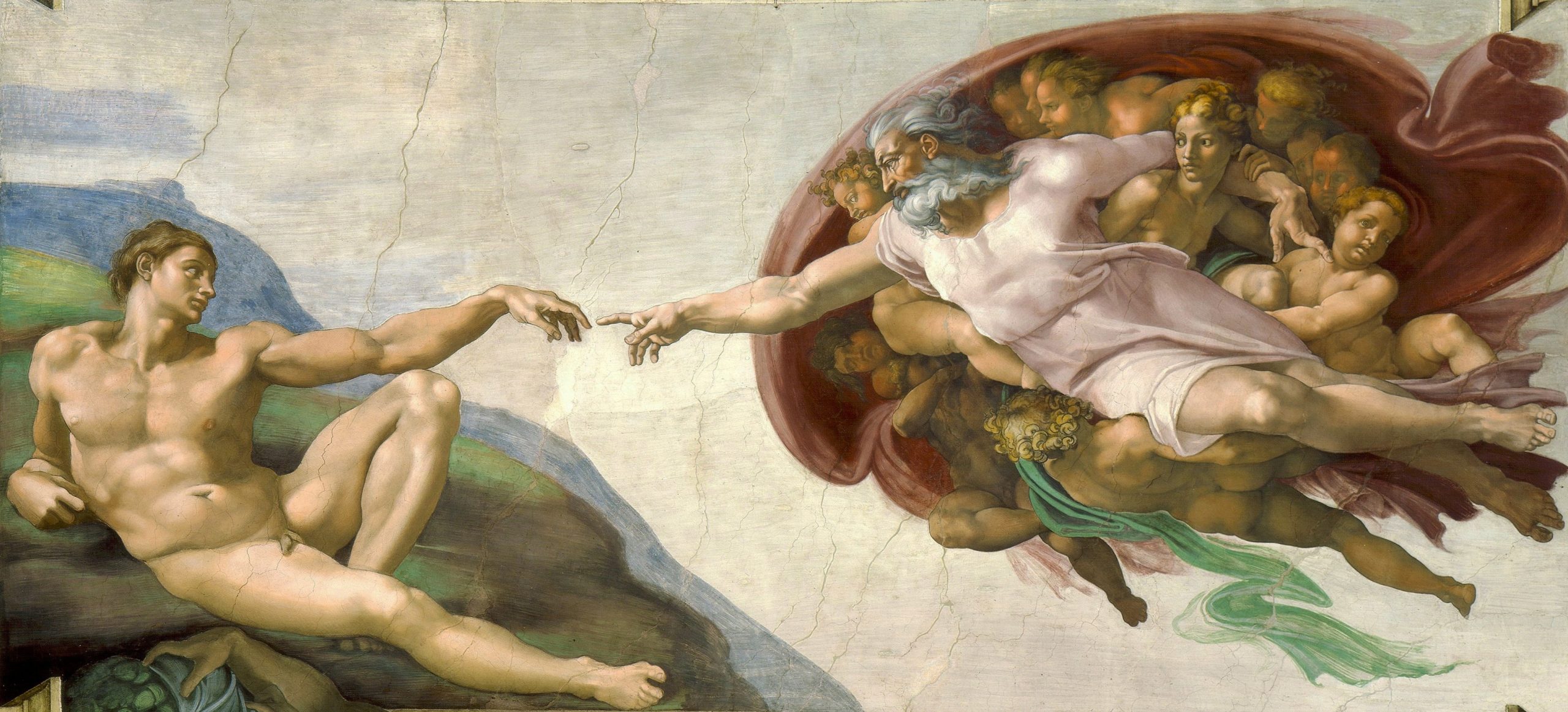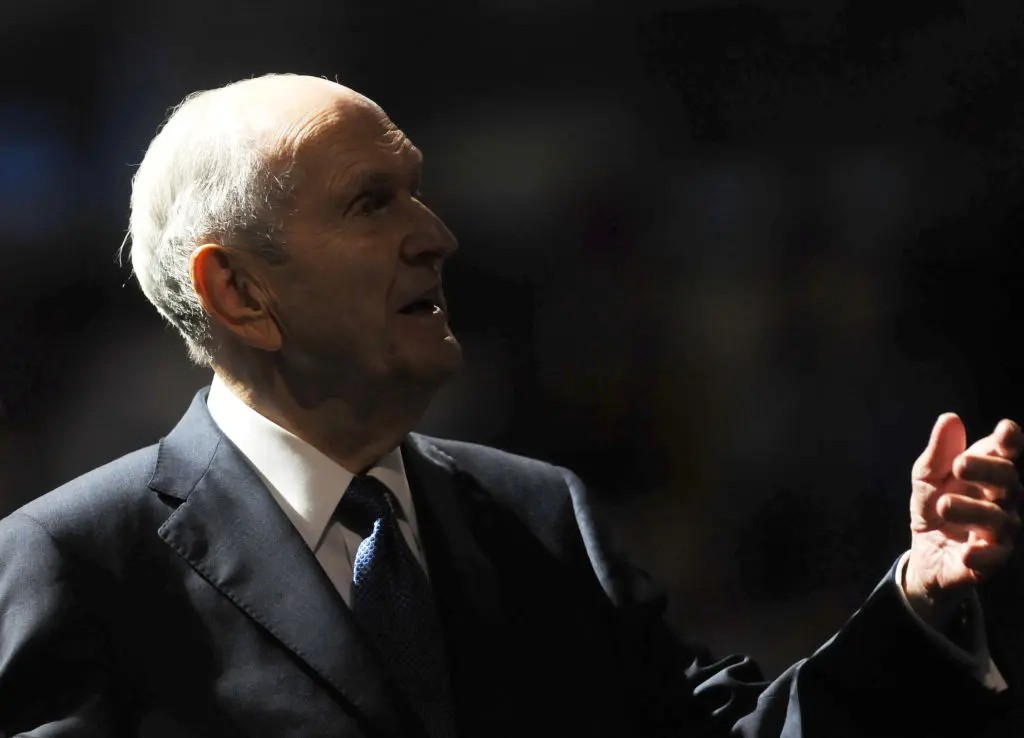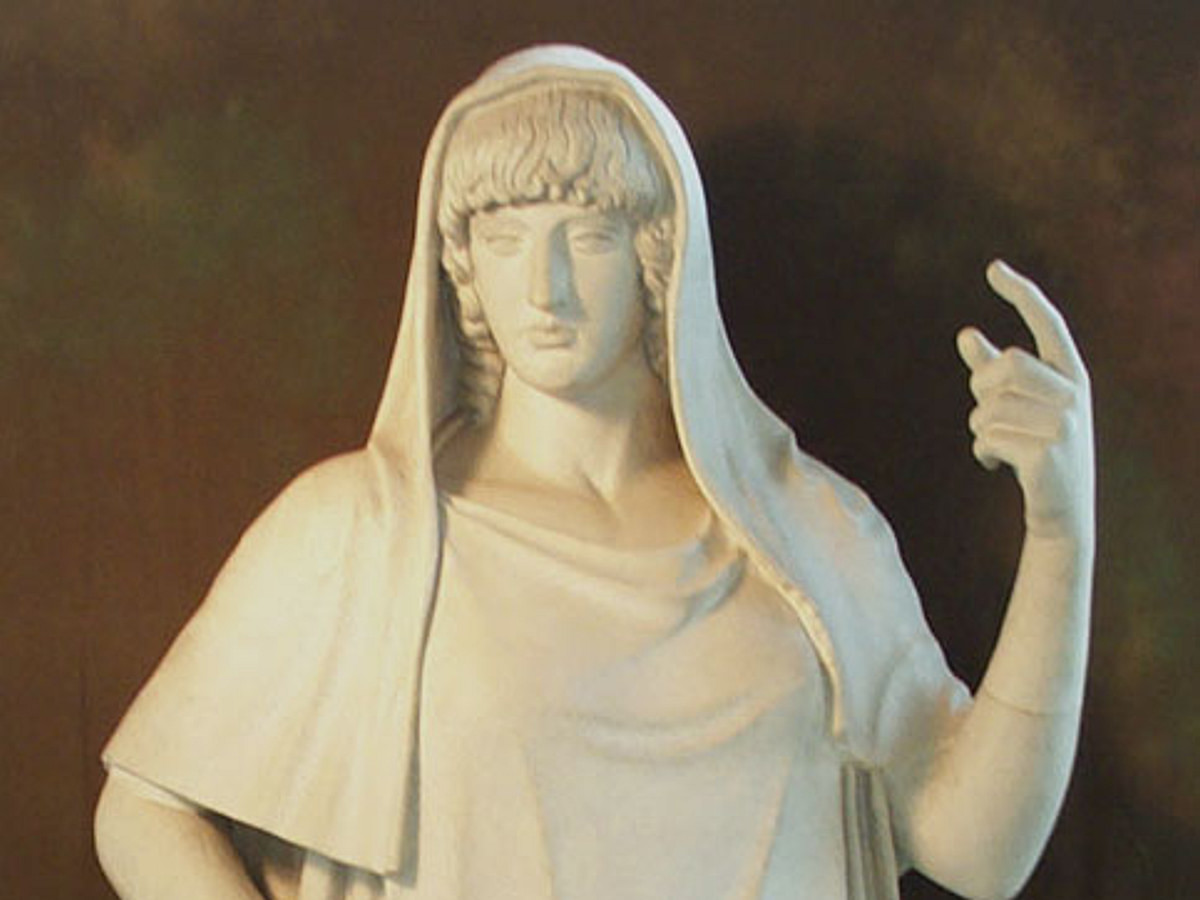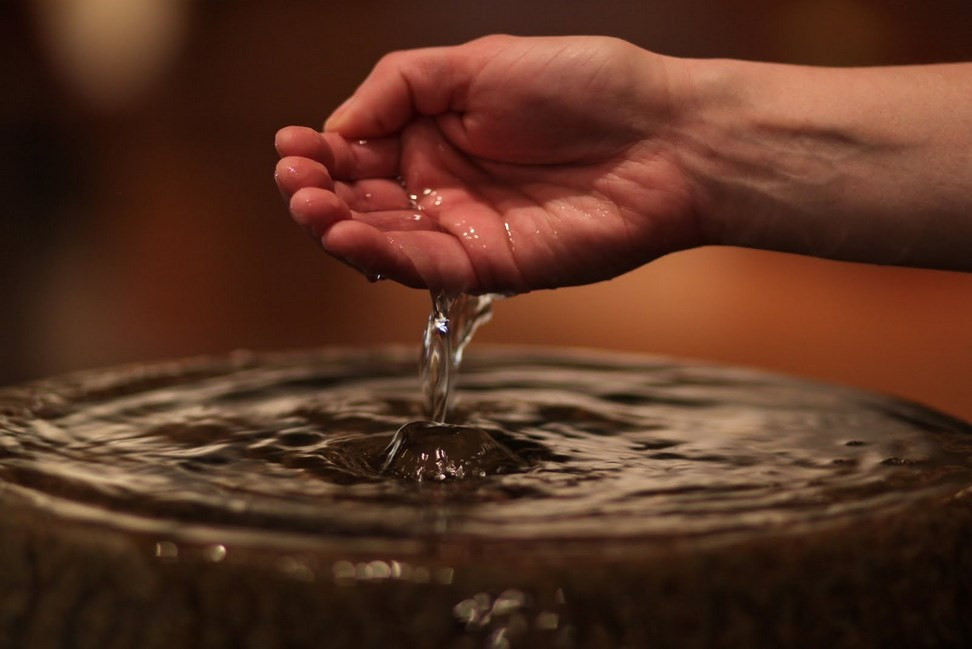
My Hijab Journey
Contributed by Yerusalem Work
Like so many people, I seek to please God (Allah). In Arabic, the name Allah is held highest. It has no gender or plural form. When becoming Muslim, reverts study Arabic, which often inspires and enlightens, humbles and challenges. It is incumbent upon Muslims to learn Arabic well enough to pray or make salat, which is formal worship. The journey to Islam is paved with wisdom and guidance. Allah guides and makes the Straight Path known to believers.
For so long in the interfaith community, I have tried on different head coverings (some say, hats) as an adherent of a faith or in solidarity with a people. Muslim women are taught to wear a veil as an expression of faith and modesty through a Quranic injunction (Surah An-Nur (24:31) & Surah Al-Ahzab (33:59)) that describes a Muslim woman’s responsibility to embrace hijab. Christian women are obligated to wear headscarves when praying or prophesying according to Paul, the author of the First Epistle to the Corinthians in the New Testament. Orthodox Jewish women often wear head coverings once married. There is value in wearing a head scarf whether modesty or subservience.
Muslim men and Jewish men have an opportunity to wear head coverings (a kufi or taqiyah for Muslim men) (a kippah for Jewish men). Outside Islam, Christianity, and Judaism, head coverings are implemented to reflect spirituality, for example, in the Sikh traditions.
As we near February 1, 2026, World Hijab Day, it is important we exercise our sacred right to express our faith and our right to choose how we present ourselves in public or private. In the United States, there is no ban on the hijab per se, but a significant percentage of employers discriminate against women who wear hijab, though it is against the law to act on such prejudice. On one end of the spectrum, some people oppose Islamic practices, altogether. This level of hatred and bigotry may even extend to other marginalized groups of religious congregants, however diverse. On the other end of the spectrum, there are people who flourish in their distinctive, cultural, and religious traditions.
It is our right to wear hijab. Here in this brief video, we hear “The Miranda Rights for Hijabis” This is an excerpt from my poetry collection, “Watery Eyes: Reflections of a Muslim Woman” It combines humor, purpose, and power.
According to U.S. law, citizens when arrested have the constitutional right to remain silent and the right to an attorney. For so many of us, our hijabs speak for us and we have no one but Allah (swt) to protect us. So, I devised this version of the Miranda Rights for Hijabis (women who wear hijab).
You have the right to wear hijab. Anything you say or do will be used to prove your Islam. You have the right to stand before Allah on the Day of Judgment. If you cannot afford a copy of the Quran, one will be provided for you. Do you understand the final revelation of Allah (SWT) given to the Prophet Muhammad, (SAWS), is a mercy for all mankind? With your faith on the line, do you realize the entire earth is a masjid, a place for prayer and purification? Will you pray as Muhammad, (SAWS), prayed?
#UnityInHijab
Your hijab may be a form of dawah (an invitation). You may invite others to Islam through sparking a conversation about faith or developing a friendship as a result of authentic expression.
On World Hijab Day, February 1st, women all over the world can celebrate the opportunity to wear a veil whether for the purpose of modesty or inclusion, solidarity or spiritual union. Hijab is not a sign of oppression; it is the evidence of a powerful form of self-expression whether the collective self or individual self. It gives us freedom from distraction in everyday conversation. It centers our day around Allah (swt), making it easier to submit our prayers.
Wearing hijab, a head covering, leads to a paradox. It makes us standout, not just for who we are, but what we believe. It makes us a representative of the One Who is unseen. This combination of visibility and invisibility empowers women who are meaning-driven. We find purpose in wearing hijab—if for no other reason than to please Allah (swt).
SWT in Arabic stands for “Subhanahu wa ta’ala” (سبحانه وتعالى), meaning “Glory be to Him, the Exalted,” or “Glorified and Exalted is He,” a phrase used by Muslims to show reverence and praise when mentioning Allah (God).
SAWS In Arabic, “SAWS” is an abbreviation for “Sallallahu Alayhi Wa Sallam” (صَلَّى اللّٰهُ عَلَيْهِ وَسَلَّمَ), meaning “Peace and blessings of Allah be upon him,” a phrase used by Muslims out of reverence and respect after mentioning the name of the Prophet Muhammad.
Yerusalem Work, a creative writer with a heart for interfaith dialogue, is an educator, passionate about community building. A holder of a master’s degree in library science and a prolific author, she regularly blogs and self-publishes her writing. Her writing has been published in Muslim Matters, Islamic Horizons, and Tysons Interfaith. She considers it an honor and a pleasure to write on Islamic themes.
This blog post is the expressed opinion of its writer and does not necessarily reflect the views of Tysons Interfaith or its members.

Contributed by Rev. Dr. Trish Hall
At Centers for Spiritual Living, our core belief is Oneness – the inseparability of all creation.
“We believe in God, the Living Spirit Almighty; One indestructible, absolute, and self-existent Cause. This One manifests Itself in and through all creation but is not absorbed by Its creation. The manifest universe is the body of God …”
All Creation is the result of the Creator expressing Itself in form. Its activity is Love. Within the One we are inseparable from one another – those we love and like and those we don’t like and yet are called to love.
We believe our world is the manifestation of God. There is nothing else so the Allness of God includes everything. Everything is within this One Creation. Within this creation are people and things we love and try to understand, and people and things that we find incomprehensible. It includes people we do not like and those we deem to be unlikable.
The task of loving those we have labeled unlikable varies from relatively insignificant to paralyzingly daunting. Our world view tends to dictate how we relate to all people – the likables and the detestables. Our emotional responses may vary from casually acknowledging that some people do not appeal to us or hold views that are incompatible with ours, to finding ourselves triggered having gut-level reactions and fear. The call to love our neighbors isn’t subject to our emotional responses. The call is clear and is not to be ignored.
Before looking at loving “the unlikable” we need to consider “unlikability.” How is it determined and by whom? The dictionary tells us that unlikable is detestable, despicable, contemptible, worthless. I ask based on what criteria? I invite you to contemplate the difference between UN-likable, which seems to focus on the nature of the person, versus DIS-likable which seems to relate more to the temporariness of behaviors. So far, I have not met a parent who hasn’t shared that there have been times when they really didn’t like their offspring yet never wavered in their love for that child. They didn’t declare that child unlikable, they disliked the behavior and loved their kid. Dislikable then seems to be redeemable, whereas someone deemed unlikable is inherently flawed.
Likeability is subjective. It is an opinion formed by an individual that then is spread to that person’s circle and ripples out coalescing the perceptions of greater numbers of people. Interestingly, the process works whether positive or negative. It is used by celebrities of all kinds. The process is impartial. History is fraught with examples of how the same process has been used destructively. Instead of uplifting someone or moving some great cause forward, it has been used in the opposite direction to impose misery and injustice. The process can engender mob mentality. All it takes is someone deciding something about someone and spreading their opinion about that person (aka gossiping), stirring up mobs of like-minded people into acts of violence. You may say those are extreme examples, and I will challenge that the pattern that conducted witch hunts in the 15th to 18th centuries, is as alive and well today as it was then. It was a demonstration of raging prejudice then. It remains a demonstration of raging prejudice now. The focuses of the prejudgments may have changed; the resulting behaviors have not.
How is unlikableness determined? By whom? On what criteria? Is there an unlikableness scale? Where do you get the information on which you have formed your opinions?
I invite you to examine your own beliefs – to challenge them – to form your own opinions whether or not they are compatible with your family and friends.
Let’s start fresh. Let’s begin by honoring what we are and why we have the ability to decide what is right for us personally. As Jane Goodall said, “What you do makes a difference, and you have to decide what kind of difference you want to make.” It is your right to choose to not examine your beliefs, to conform to some external expectations and remain as you have been. And you have the right and the privilege to decide to change radically or anywhere in between. We are blessed that we have those options. We have those choices because we are endogenous beings – our origin is internal rather than dependent upon external forces. We are thinking beings that have the power to choose our own courses of action. I believe that exercising that privilege is our responsibility.
As believers in Oneness, is there a space for anyone to be judged unlikable? Perhaps, very dislikable?
Preparing for this self-examination, a first step might be to look closely at our own criteria. Is it a reflection of the society in which we live or our personal values? Have you reviewed the input of others (media, relatives, etc.) to determine whether it is in alignment with your values – with how Spirit within you is calling you to be?
Oneness assumes that everyone and everything is the expression of One Creator. Different traditions have given this one creator myriad names. The names can limit our perceptions – our assumptions about it. They cannot limit the Creator. Oneness asks us to accept that it includes what we understand and what we don’t, what we like and what we don’t, what we love and what we don’t. Oneness calls us to be so open that we can be in the midst of apparent disparities and contrasts and learn strategies to live in peace celebrating diversity within the Oneness. Oneness invites us to be in integrity and live into the change we want to experience. Some tough questions remain: Are our hearts big enough to hold a space for those whose behaviors appall us without judging them to be inherently (perhaps permanently) flawed? Can we expand our concepts of being present with those we do not understand so that we can learn from them while remaining grounded in Love? Are we willing to be open to the possibility that we can create a world that works for all especially when it requires collaboration with the dislikables? Are we bold enough to be peace makers in the midst of the antithesis of peace?
Jane Goodall declared, “What you do makes a difference, and you have to decide what kind of difference you want to make.” I ask, Do you have the courage to stand as Oneness, as a Peace Builder … to be a change-maker?
To learn about the Centers for Spiritual Living’s Global Heart of Peace Initiative, please visit: https://csl.org/spiritual-community/heart-of-peace/.
This blog post is the expressed opinion of its writer and does not necessarily reflect the views of Tysons Interfaith or its members.

Contributed by Stephen Wickman, St. Thomas Episcopal, McLean
Spurred by a comment to my blog post on “comfort,” led me to take a historical and philosophical dive. In 2014 Philip Jenkins wrote a deliberately provocative article to argue there was “a genuine and epochal decline in the number and scale” of religious movements like the Church of Scientology and the Unification Church, both of which date from the 1950s and early 1960s.
But others have mushroomed in Asia, where I lived and worked for years. Daesoon Jinrihoe, founded in 1969, is the largest “new religion” in Korea, while the Church of Almighty God – you can’t make these names up — was established in 1981 in China and claims millions of followers at home, and because of persecution and emigration in some 20 other countries. Indonesia, Vietnam, Africa, Puerto Rico, and Columbia have spawned “new” religions or neo-Pentecostal groups. Mexico’s La Luz del Mundo has spread despite COVID-19 and the arrest of its leader for a sexual crime.
The new Korean religions usually cite Christianity as a source and are often more successful abroad than at home. Just so, the World Mission Society Church of God claims two million members in Nepal, Latin America, and even in the United States, where the Unification Movement has dwindled to 65,000 members but controls the wholesale sushi supply industry and a newspaper. Won Buddhists and Jeungsanists have recently translated their texts and begun missionizing abroad, which some see as unprecedented in religious history.
Why do we need religion, new or old?
In 1949, Karl Jaspers posited the idea that there was an “Axial Age” from roughly BCE 800-200 when humans, across vastly different regions and without direct contact, simultaneously came up with new ways of thinking that lay the foundations for the world’s enduring philosophical, moral, and religious traditions. These included China, where Confucius and Laozi (Taoism) reshaped ideas on ethics and governance; India, where the Buddha, the Upanishadic philosophers, and the Jain tradition emphasized liberation, compassion, and self-realization; Persia, where Zoroaster, introduced dualistic cosmology and moral responsibility; Greece, where Socrates, Plato, and Aristotle explored reason, ethics, and metaphysics; and Palestine/Israel, where figures like Isaiah and Jeremiah deepened the moral and spiritual vision of Judaism.
Jaspers has been criticized for simplifying things, but many agree there was a process if not an “Age” where a new layer of morality emerged that featured the following principles:
1. Moralistic punishment: violations of “natural” morality will be punished by higher authorities, in this life or the next.
2. Moralizing norms: peers and other members of a relational network are obliged to monitor and deter deviance.
3. Pro sociality: cooperative behavior should be actively encouraged and rewarded.
4. Moralizing supernatural beings: an “eye in the sky” watches over everyone, punishing sins and rewarding virtuous behavior.
5. Rulers are not gods: worldly leaders are merely human, just like everyone else.
6. Equality: moral rules apply to both elites and commoners, regardless of birth and social status.
7. Ruling morality: The rules apply to the rulers as well.
8. Formal legal code: the rule of law is explicitly formulated.
9. General applicability: the law applies to all citizens equally.
10. Constraints on the executive: decisions are constrained by formal rules—such as a veto—or informal (but powerful) ideological constraints, e.g. requiring the tacit approval of a priesthood.
11. Bureaucratization: administration of a system of governance requiring specialist skills, training, and salary.
12. Impeachment: excessive and arbitrary exercise of power by rulers can lead to their removal.
This new morality replaced “archaic” systems where rulers could act with impunity. Again, however, there were exceptions. In the Italian Peninsula, Christianity created a pronounced moralizing dimension, but it was accompanied by an increase in social inequality – still not as bad as in the old Roman Empire — and the emergence of a religious autocracy. Moreover, the greatest concentration of axial principles was not in the first millennium BCE, but in the 2,000 years that followed. Because of the emperors’ strong association with the divine and a lack of tension between secular and sacred order, Japan remained pre-axial until the modern era despite early introduction and adoption of Buddhist and Confucian ideas. And in what is now Cambodia, Buddhism and the Hinduism that preceded it did not exercise a moralizing effect until much later.
Archaeological and historical research in the decades since Jaspers, moreover, has unearthed evidence for “sustained, impactful connections between all of these regions.” Zoroastrianism, Rabbinic Judaism, and Greek philosophy not only developed through the exchange of ideas, but also owed much to earlier Hittite, Mesopotamian, and Egyptian ideals and practices.
But what about the newest religions? Several theories share the idea that after the French and Industrial Revolutions, rapid change and the feeling of an “accelerated history” provided fertile ground for such movements. They argue that it is not a coincidence that Spiritualism and the Church of Jesus Christ of Latter-day Saints appeared first in 19th century New York and that some Asian countries, faced with imperialism, colonization-decolonization, war, and sudden economic development have similar experiences.
Fast forward to Korea, where the social unrest caused by Japanese, Chinese, Russian, and Western imperialism helped spread the idea that Buddhism, Confucianism, and Taoism were outmoded. Christianity and Ch’ŏndogyo, Daejongism, and the branch of Jeungsanism known as Bocheonism gained followers because they opposed Japanese occupation. After the devastation of the Korean War, new groups proliferated and became even larger. And they continue to this day.
This blog post is the expressed opinion of its writer and does not necessarily reflect the views of Tysons Interfaith or its members.

Contributed by Lois Herr — First Church of Christ, Scientist, McLean
Many people set aside time in their day for prayer, reflection, or meditation. As a Christian Science practitioner, I often find inspiration in daily audio reflections presented by members of our church, called the Daily Lift.
A recent Daily Lift by Madora Kibbe, a Christian Scientist Practitioner and teacher from New York, New York, is entitled, “Why Would You Love An Enemy?” In this segment, Madora notes that the Sermon on the Mount (the manifesto for peace) in the Christian Bible directs that we love our enemies – “and that is hard!” To illustrate her point, Madora shares a touching vignette about her father, who served in World War II. She concludes that because we are all manifestations of the spirit of our creator, it is our duty to separate wrongdoing from people. For Madora, loving our enemy, is indeed, the only real answer.
The Daily Lift is comprised of audio presentations contributed by Christian Science church members worldwide – with the majority coming from the U.S. This particular Lift will remain on the website for thirty days before being retired.
May this segment bring you peace and encouragement.
This blog post is the expressed opinion of its writer and does not necessarily reflect the views of Tysons Interfaith or its members.

Contributed by Stephen Wickman: St. Thomas Episcopal, McLean
“What would they do if they were tested with a great tragedy, wouldn’t they need God for comfort?”
That was the question asked by one of our Baha’i friends at last week’s Interfaith Coffee House (please come!) in response to my snarky suggestion that, looking at the lives of my son and his wife and daughter at least, one doesn’t have to believe in God or practice a particular faith to lead a good and contented life. It got me thinking.
It’s not always the need for comfort that brings us to God, although there’s a long strain in Christianity that sees this. In fact, listening to a BBC broadcast about prison conversions the other day, I was struck by how these events occur most often when a person is at their lowest ebb.
But then there is the case of Saul on the road to Damascus: the man who became Paul knew in his heart that persecution was not God’s will. Justice, humanity, and love for one’s enemies – not comfort – was the basis for his conversion. Of course, when Paul was imprisoned in what is now Turkey, he led his fellow prisoners in hymns to God even as they experienced a massive earthquake. He told them to take comfort in the Lord and not to escape and ended up converting their jailor!
If you examine the life of Christ or Buddha or perhaps of other religious leaders, “comfort” is not the first word that comes to mind. They struggled often, and almost as frequently they called us to live a life of discomfort. As Jesus put it in Matthew 10:
‘Do not think that I have come to bring peace to the earth; I have not come to bring peace, but a sword.
For I have come to set a man against his father,
and a daughter against her mother,
and a daughter-in-law against her mother-in-law;
and one’s foes will be members of one’s own household.
Whoever loves father or mother more than me is not worthy of me; and whoever loves son or daughter more than me is not worthy of me; and whoever does not take up the cross and follow me is not worthy of me. Those who find their life will lose it, and those who lose their life for my sake will find it.’
Not exactly a message of comfort.
But I’m sure our Baha’i colleague had something else in mind when he used the word “comfort.” In the face of adversity, one can indeed take comfort in the assurance that God is with you and that someday soon this will be overcome. That’s what motivated Paul in captivity, and that’s what has helped so many in the world overcome injustice.
This blog post is the expressed opinion of its writer and does not necessarily reflect the views of Tysons Interfaith or its members.

Contributed by Stephen Wickman, St. Thomas Episcopal, McLean
“Why Have Empathy for Those Who Never Extend It?” is how Qasim Rashid begins a brave essay that reflects on the death of Charlie Kirk Reflections on the Death of Charlie Kirk. It is well worth the time to read his thoughts in full, but here is a summary:
Rashid argues that Kirk rarely extended empathy and often poured contempt on many groups of Americans, including Muslims, engendering hatred.
And he returns to a verse from the Qur’an for guidance:
“O ye who believe! be steadfast in the cause of God, bearing witness in equity; and let not a people’s enmity incite you to act otherwise than with justice. Be always just, that is nearer to righteousness. And fear God. Surely, God is aware of what you do.” — Chapter 5, Verse 9
Rashid detests and works ferociously to counter what he views as the hatred that Kirk engendered but at the same time does not allow these injustices to make him retaliate in kind. As he puts it: “I will not allow his fear of the other infect my ability to see the humanity in every person.”
And here is an important comment from the niece of Rev. Martin Luther King:
‘And now while his family and this nation grieve, some are calling him a racist. A white supremacist. Even a fake Christian. Such accusations are conversations unbecoming to a Christian,” she continued. “In the final analysis, Charlie stood for life, for faith, and biblical truth. He wasn’t afraid to say the name of Jesus in the public square, and he paid a price for it. Now is not the time to attack Charlie. It’s the time to lift up the banner of Christ as the member of the one blood human race Charlie Kirk did. His legacy of public discourse of bringing difficult conversations to the table mattered. He caused us to think and to pray. Charlie has gone to meet his maker. May he rest in peace. May we honor him today by praying for his family and by answering this question: Where will you spend eternity?’
“Such empathy or hard “love” is a basic premise of all our faith traditions. I disagree with Kirk on most things, but especially on his treatment of the LGBTQ community, Muslims and “progressives,” but like Rashid’s, my faith requires me to respond with kindness even as I express my disagreement.
In the Book of Common Prayer of the Episcopal Church, there is a prayer for one’s “enemies” that carefully balances responsibility on both sides of a conflict:
“O God, the Father of all, whose Son commanded us to love
our enemies: Lead them and us from prejudice to truth:
deliver them and us from hatred, cruelty, and revenge; and in
your good time enable us all to stand reconciled before you,
through Jesus Christ our Lord. Amen.”
In that spirit and in the spirit of Islam and other faith traditions, let us extend our empathy and love, without prejudice, to the Kirk family and his supporters.
This blog post is the expressed opinion of its writer and does not necessarily reflect the views of Tysons Interfaith or its members.

Contributed by Susan Posey, Redeemer Lutheran Church, McLean
A friend of mine recently shared a link to an article published in Time entitled, We All Deserve Dignity and Respect. It is authored by Russell Nelson, the President of The Church of Jesus Christ of Latter-Day Saints on the occasion of his 101st birthday! Mr. Nelson’s observations are his gift to us, and I for one, found them to be very encouraging.
Here are a few snippets:
“The world has changed dramatically. Yet what I have learned is that some truths do not change. These enduring truths are what anchor us in turbulent times.”
On the occasion of my 101st birthday, I wish to share two such truths – lessons that I believe contribute to lasting happiness and peace.
First: Each of us has inherent worth and dignity. I believe we are all children of a loving Heavenly Father. But no matter your religion or spirituality, recognizing the underlying truth beneath this belief that we all deserve dignity is liberating – it brings emotional, mental, and spiritual equilibrium – and the more you embrace it, the more your anxiety and fear about the future will decrease.
Second: Love your neighbor and treat them with compassion and respect. A century of experience has taught me this certainty: anger never persuades, hostility never heals, and contention never leads to lasting solutions.”
Regardless of your religious or spiritual practice, I think there is much wonderful food for thought in this article, the full text of which can be found here.
Happy Birthday, Mr. Nelson, and thank you for sharing your wisdom with us.
This blog post is the expressed opinion of its writer and does not necessarily reflect the views of Tysons Interfaith or its members.

Contributed by Stephen Wickman, St. Thomas Episcopal, McLean
I had forgotten all about the book I had to read in high school until I heard this show about the Greek goddess Hestia (Vesta to the Romans). (BBC Audio | Natalie Haynes Stands Up for the Classics | Hestia That book is long gone, but my memory synchs nicely with the classicist podcasters message: she was the most important deity in classical Greek society – so fundamentally known to everyone that she hardly ever gets talked about in literature (you know, Homer and all those guys).
Hestia’s story is “juicy,” not because she flaunted her obvious physical attractiveness but because she spurned romantic approaches from her more well-known brother, Poseidon and her nephew, Apollo, vowing to Zeus that she would not take a partner. She also stood up to other women, like Aphrodite, who Homer tells us had no power over Hestia.
Hestia is identified with fire and the hearth and the abstractions of community and domesticity, not the fire of metalworking or war. Every Greek city had a communal hearth where her fire was set and worshiped. In art, she is often depicted simply and modestly in a veil or holding a staff or by a large fire, or sitting on a plain wooden throne.
The Christian tradition brings the Greek gods down to earth in the form of saints or maybe angels, and the one that Hestia reminds me of is Martha, who busied herself about the kitchen (the hearth) and complained that her sister Mary was doing nothing, just sitting and listening to the words of Jesus. And she appears in the Gospel of John as the sister of Lazarus. “There they made him a supper; and Martha served.”
Hestia, a bit like Martha, is the patron saint of those who focus on community and domesticity, two bookends that are closely related. If we love and tend to the needs of our own family that will lead to love and service to the greater community, a value that all our faith traditions share.
This blog post is the expressed opinion of its writer and does not necessarily reflect the views of Tysons Interfaith or its members.

Contributed by Andra Baylus, Regional Director of the Meher Baba Spiritual Community
Carrying out protecting citizens and the many variations of being a citizen, which includes people of different faith traditions, cultures, the wealthy, the poor, the middle class, the homeless and the immigrants, should be done carefully and respectfully taking into consideration each individual’s circumstances, thus ~ judiciously.
This is what America is all about.
When issues are raised of crime being rampant in DC and people not feeling safe to attend their houses of worship at night or people “disappearing” who are citizens and have not committed any crime, then of course, it is an invitation for action of some kind to take place to remedy these valid concerns. The questions then would be, “What kind of action is needed?” and, “How best can these actions be fairly implemented?”.
Not to act would be an abdication of governmental responsibility to protect its citizens, however, rounding up people indiscriminately may not be the wisest way to go about protecting the citizens of DC.
Muhammad (May blessings and peace be upon him- bpbuh) often spoke about the ” middle path”. He also was thought to have said that, “One hour of reflection is worth 70 years of prayer.”.
Would it be possible to follow the ” middle path” suggested by Muhammad (bpbuh) and pause to reflect upon how best to proceed?
Speaking to people who have experience in these areas of concern to seek their guidance would tap their knowledge and experience and help guide and refine actions to be not only fair to all citizens, but also effective. The importance and value of knowledge is firmly rooted in Islamic teachings. There are authentic Hadith that emphasize the obligation of seeking knowledge, such as: ” Seeking knowledge is obligatory upon every Muslim.”
“Seek knowledge even if you have to go as far as China” is a widely known saying attributed to the Prophet Muhammad (bpbuh), however, its authenticity as a hadith is debated among scholars. Many Muslims interpret this as a figurative expression emphasizing the importance of seeking knowledge diligently even if it requires traveling to the ends of the Earth.
Why not then seek advice about the issues of crime from professionals and before stepping forward to do something, is it possible to pause, do “due diligence”, inquire, reflect and use discernment to gauge the proper course of action.
All of our many faith traditions have wisdom embedded in our respective holy books and writings, as referenced above regarding Islamic texts. In today’s world, surely this guidance is more important than ever before.
This blog post is the expressed opinion of its writer and does not necessarily reflect the views of Tysons Interfaith or its members.

Contributed by Stephen Wickman, St. Thomas Episcopal, McLean
There is an ongoing debate in the Christian community about the “sacraments,” or what is essentially necessary to be a Christian. All of our communities agree on two: Communion (Eucharist, the Great Thanksgiving, the Mass) and Holy Baptism. Some traditions (primarily the Roman Catholic) claim you must be baptized in order to partake of the former. My church practices an “open table” theology, which is discouraged by some Episcopal Bishops. In short, the “open table” approach allows anyone to join in the Communion.
This is a sensitive matter for me, since I was “conditionally” baptized on August 19. You see, near the end of her life, my mother admitted to me that I may not have been properly baptized in the Pilgrim Holiness (now Wesleyan) tradition since they frowned on infant baptism. This was startling news because I was confirmed as a Methodist and then an Episcopalian on the basis on what I thought had been my infant baptism. But my mother said I may have just been “dedicated, not baptized.
If you believe all this mumbo jumbo, it’s a big deal. Hence my last-minute conditional baptism, which neither of my parish priests had ever administered. The only difference, is when the priest lays on hands he/she says “if you have not been baptized, then” etc.
It was an emotional moment for me. Adults are very different from infants. They can consider the surroundings, the few parishioners who joined a Tuesday noon mass at my church, the candles, the liturgy, the water on one’s head, the scent of the chrism applied to the forehead.
My rector, the Rev. Fran Gardner-Smith crooked her arm in mine as she presented me to our Assistant Rector. I was very moved. After all, I had served on the vestries of two Episcopal churches and I’m a certified lay Eucharistic minister.
But now I am “properly” baptized. This coming Sunday, we will baptize several Iranian converts. As I recite the baptismal vows, I will rededicate myself to some of the most extraordinary promises that any human can utter. If you are interested, please read What We Believe As Episcopalians, Starting With The Baptismal Covenant
This blog post is the expressed opinion of its writer and does not necessarily reflect the views of Tysons Interfaith or its members.
